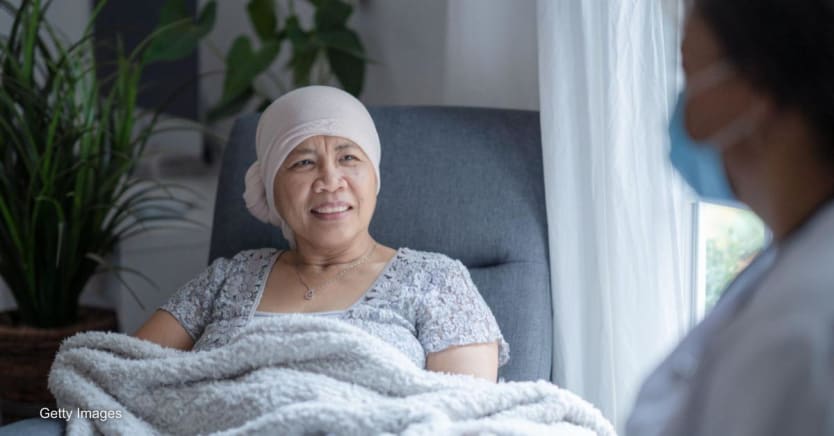
We are facing an explosion of one of the biggest global health threats of our time — the rapid rise of noncommunicable diseases, or NCDs. Cardiovascular diseases, such as heart attacks and strokes, cancers, chronic respiratory diseases, and diabetes are by far the leading cause of death globally, killing 41 million people each year and representing 74% of all annual deaths. 17 million of those are considered premature deaths, which means they affect people below the age of 70. Low- and middle-income countries are bearing the greatest burden and impact that NCDs have on patients and communities. Of all NCD deaths, 77% occur in LMICs. The human toll is deeply inequitable and it’s getting worse.
This week marks the Global Week for Action on NCDs with a focus on bridging the care gap and the solutions needed to address the growing problem. There is no quick fix. Instead, it will require a holistic approach that encompasses health equity, scalable solutions for countries with limited resources and funding, and a change in the way we view health care.
Addressing health equity and barriers to access
The shocking truth is that NCDs are largely preventable. Comprehensive and far-reaching action, including removing barriers to health care access and education, as well as building health system resilience, is the only way to tackle the NCD time bomb. Tackling the major risk factors — poor diet, physical inactivity, and tobacco and alcohol use — is a critical way to reduce the increasing burden. We know, for example, around three-quarters of cardiovascular disease could be prevented through lifestyle changes including increased daily physical activity. But doing so requires a complex, multistakeholder approach to address contributing factors and the social, cultural, and economic determinants of health.
Beyond prevention, two critical factors in transforming patient outcomes include early detection and securing treatment at the right time. For example, only around 20% of people with lung cancer are diagnosed at stage one, when their likelihood of surviving five years is between 68–92%. By comparison, more than 40% of lung cancer cases are detected at stage four, when their likelihood of surviving five years is under 10%. It is also estimated that by 2030, more than two-thirds of all cancer-related deaths will be in LMICs because of the challenges in accessing early diagnosis and treatment.

Everyone in the health care ecosystem has a responsibility to advocate for reform and to build local capabilities that address NCD-related unmet needs, improve access to quality health care, and provide solutions along a continuum of care — across prevention, awareness, early diagnosis, and timely treatment. Over the past three years we witnessed how public-private partnerships saved lives through cross-sector and cross-border collaboration to manufacture and distribute COVID-19 vaccines to the world. This is now the key to addressing some of the most significant health care challenges in LMICs, including getting our medicines to patients with access challenges, and working to roll out advanced diagnostics to ensure rapid detection of NCDs to be able to improve patient outcomes.
How digital innovation is altering patient outcomes
Artificial Intelligence is transforming what’s possible when it comes to the diagnosis and treatment of NCDs. It’s allowing us to analyze and interpret huge amounts of data and, crucially, identify NCDs in their early stages, leading to better long-term patient outcomes. For example, traditional screening methods for lung cancer, such as computerized tomography scans, or CT scans, are prohibitively expensive for use in LMICs. Instead, technology offered by AI company Qure.ai, for example, can now identify high risk lung abnormalities requiring follow-up through a low-cost, widely available chest X-ray, making screening accessible. AstraZeneca is working with Qure.ai to support the implementation of this technology with grassroot-level health care systems and professionals to reshape health care delivery and solutions. The potential for AI and digital innovation to break down barriers in emerging markets fills me with huge hope as we look to create scalable solutions to tackle the NCD burden.
Investing in health care, not sick care
There is also a need for a wide-scale policy shift in the way we view health. That means shifting mindsets toward viewing health as a strategic investment, with a focus on prevention and helping to reduce the impact of NCDs. This can be achieved by developing infrastructures for efficient health care systems, supporting long-term solutions, and driving health care reform. We need preventative strategies integrated with care across the life course, supported by sufficient capacity — one of the biggest challenges facing emerging markets.
And we need to invest in health care, not sick care. For too long we have focused on what to do when someone gets sick, instead of focusing on how to prevent them from becoming sick in the first place. We know that NCDs are very often a result of behaviors that start during childhood and adolescence, so at AstraZeneca we place particular emphasis on disease prevention through education and partnerships. We are working with organizations across the world to invest in community initiatives, programs, advocacy, and research to address this health emergency. By educating and empowering young people through our Young Health Programme to make better lifestyle choices, we hope to play a key role in NCD prevention, creating a healthier society and reducing the burden on health systems.
By 2030, the United Nations has a target to reduce premature NCD deaths by one-third as part of the global Sustainable Development Goals. If we are to stop the devastating rise in NDCs, we need to take urgent action to address risk factors and invest deeply in educating communities and populations most at risk. We also need to deliver scalable and, crucially, affordable solutions for those emerging markets bearing the brunt of the NCD crisis.
By breaking down the barriers of health equity, enabling cost-effective solutions and transforming the approach to early education, we have an opportunity to reverse the devastating impact of NCDs. But time is running out and we will pay an even higher price in the future if we fail to act now.
This article has been created and fully funded by AstraZeneca.








